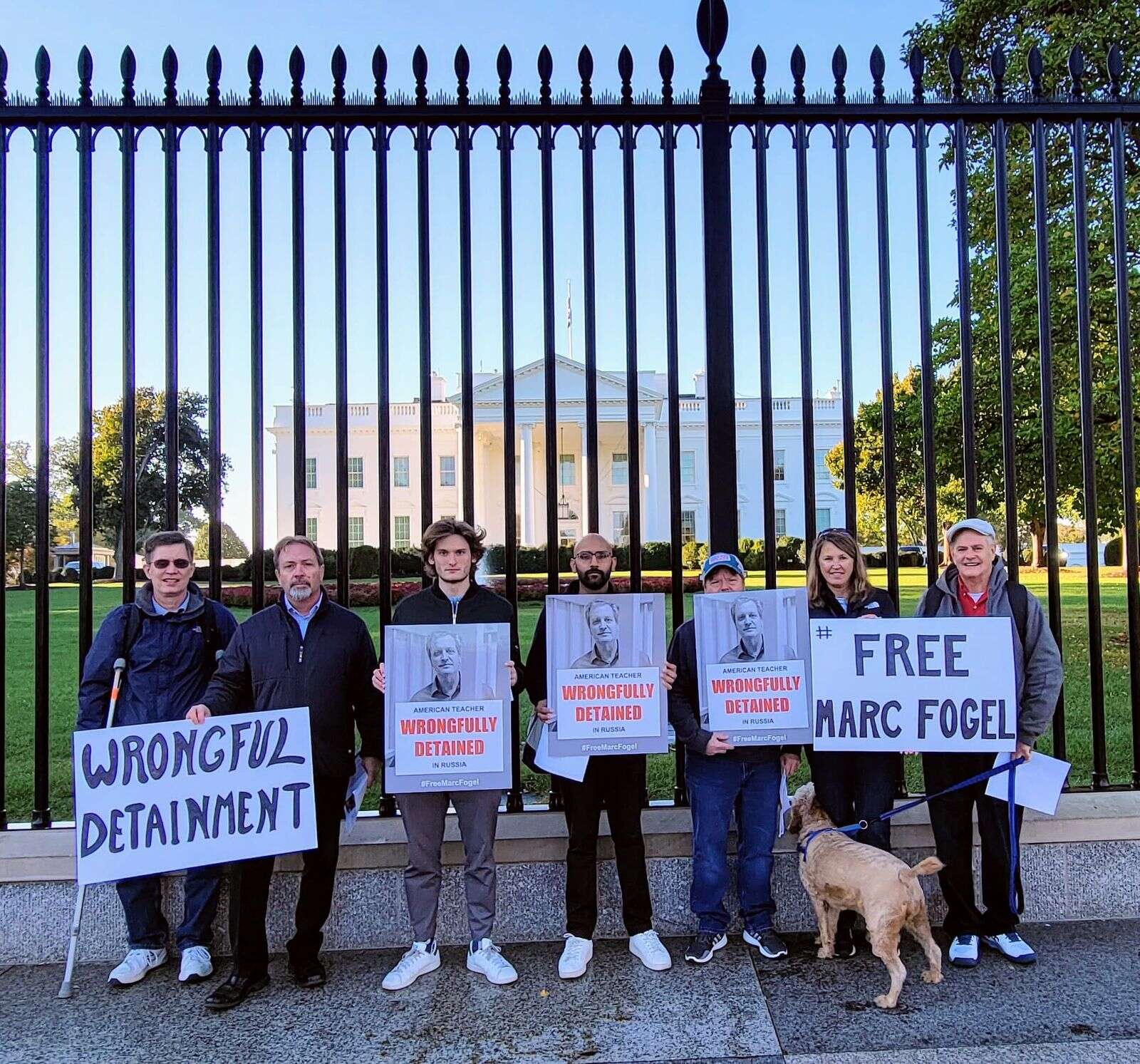Marc Fogel, an American educator and former college professor, has been at the center of international attention due to his detainment in Russia. His story intertwines the complexities of international relations, the risks faced by foreigners in certain countries, and the challenges of navigating legal systems abroad.
Fogel’s situation began to unfold in August 2021 when he was arrested at Moscow’s Sheremetyevo Airport. The reason for his arrest was the discovery of cannabis and pills in his luggage. Specifically, Fogel was found to be carrying 17 grams of marijuana, which he claimed were for medical purposes to treat his chronic pain, a result of past injuries. Additionally, he had prescription pills. However, in Russia, where the laws regarding drugs are strict, his explanation did not mitigate the seriousness of the offense in the eyes of the law.
The legal proceedings against Fogel culminated in a significant sentence: he was sentenced to 14 years in a maximum-security prison. The severity of the sentence reflects the stringent drug laws in Russia and the country’s tough stance on drug offenses, even when the substances are for personal, medical use.
Fogel’s case has sparked concern and debate on several fronts. Internationally, it highlights the risks that travelers, especially those from Western countries, face when moving through or residing in countries with strict legal systems and political tensions. The U.S. Department of State often issues warnings to travelers about the laws and practices in foreign countries, emphasizing the importance of respecting local regulations, no matter how different they may be from those in the traveler’s home country.
Diplomatically, Marc Fogel’s detention and sentencing have contributed to the complexities of U.S.-Russia relations. The case has been viewed by some as another point of contention between the two nations, which have faced numerous challenges in their relations, including disagreements over security issues, economic sanctions, and human rights. The U.S. government has been urged to intervene and secure Fogel’s release, but such efforts are fraught with difficulty due to the current state of diplomatic relations and the principles of sovereignty and non-interference in the internal affairs of other nations.
Human rights organizations and advocates have also weighed in on Fogel’s case, highlighting concerns about the fairness of his trial, the conditions of his detention, and the impact of strict drug laws on individuals, especially those who might be using controlled substances for legitimate medical reasons. The debate surrounding medical marijuana and prescription drug use crosses international borders, with different countries adopting a wide range of policies, from prohibition to legalization for medical or even recreational use.
In the broader context, Marc Fogel’s story serves as a poignant reminder of the importance of understanding local laws and regulations when traveling or living abroad. It also underscores the challenges faced by individuals and families caught in the complexities of international law and diplomacy, particularly during times of geopolitical tension. As the world becomes increasingly interconnected, cases like Fogel’s highlight the need for clear information, careful planning, and perhaps most importantly, empathy and understanding between nations and their legal systems.
Enhancing Understanding of International Legal Complexities
- Travel Advisory Systems: Many countries, including the United States, operate travel advisory systems that provide information on the safety and security situation in other countries. These systems often include details on local laws and customs that travelers should be aware of.
- Legal Assistance: For those detained abroad, understanding their legal rights and having access to competent legal assistance can be crucial. This includes knowing how to contact one’s home country’s embassy or consulate for support.
- Medical and Prescription Drug Policies: Travelers, especially those who rely on prescription medications or medical marijuana, should research the drug laws of their destination countries thoroughly. This includes understanding what medications are allowed, in what quantities, and what documentation may be required.
- Cultural and Legal Sensitivity: Being respectful and informed about the cultural norms and legal expectations of host countries can help reduce the risk of unintentionally violating local laws.
Moving Forward
Marc Fogel’s case, and others like it, will continue to draw attention to the intersections of personal freedoms, international relations, and the varying legal landscapes around the world. As global citizens, being informed, empathetic, and proactive in understanding these complexities can help navigate the challenges posed by such cases, both for individuals directly affected and for the broader international community.
What are some key considerations for travelers regarding drug laws in foreign countries?
+Travelers should research and understand the drug laws of their destination countries, including what substances are legal, in what quantities, and what documentation may be required for prescription medications. They should also be aware of the potential consequences of violating these laws, which can be severe.
How can individuals support those detained abroad for drug offenses?
+Support can include raising awareness about the case, advocating for the individual's rights through legal and diplomatic channels, and providing emotional support to the detainee and their family. Additionally, donating to organizations that provide legal assistance and advocating for policy changes can help address the root causes of such detentions.
What role can governments play in helping their citizens detained abroad?
+Governments can play a crucial role by providing consular assistance, which includes visiting detained citizens, providing information about the local legal system, and helping citizens understand their rights. Governments can also engage in diplomatic efforts to ensure fair treatment and to negotiate the release of their citizens when appropriate.
In conclusion, the case of Marc Fogel and similar cases underscore the importance of awareness, empathy, and international cooperation. By understanding and respecting the laws and cultural norms of other countries, individuals can reduce their risk of unintended legal complications. Meanwhile, governments and international organizations must continue to work towards creating frameworks that balance the need for legal order with the protection of human rights and the nuances of individual circumstances.



